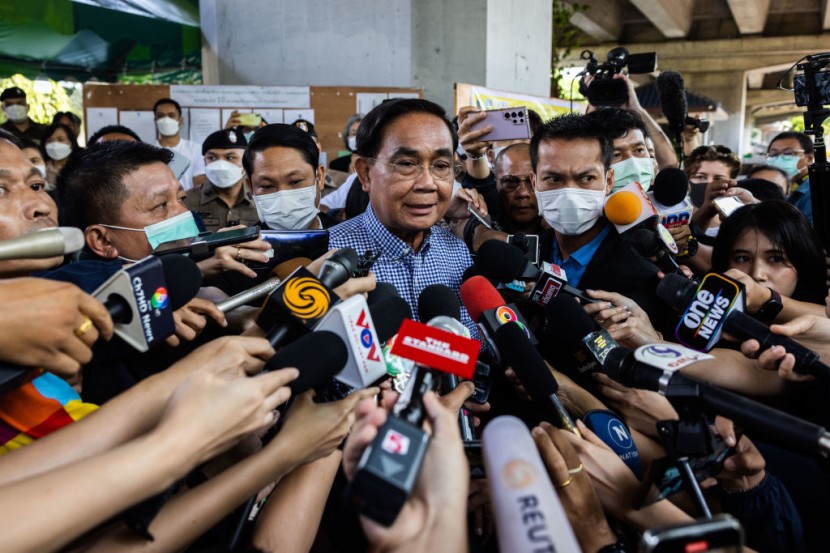
Thailand's prime minister Prayuth Chan-ocha announced Tuesday (July 11) his retirement from politics after his military-backed United Thai Nation Party was defeated in general elections last May. His announcement culminates his nine-year political tenure after taking power in a military coup.
Prayut will stay in power as caretaker prime minister until a new government is formed. His announcement was widely expected after his party only won 36 out of the 500 seats in the Thai Parliament.
The 69-year-old former military general and staunch royalist led a junta in 2014 until an election in 2019 and was chosen by parliament to remain prime minister for four more years.
Despite the controversies of his regime, Prayuth said he "achieved many successes.
"I as prime minister have worked hard to protect the nation, religion, and monarchy for the benefit of the beloved people. The result is currently bearing fruit for the public," he said in a statement.
Prayuth added he "tried to strengthen the country and all areas for stability and peace" as well as overcoming "many obstacles" both domestically and internationally.
The outgoing prime minister has survived multiple challenges such as court cases, parliamentary confidence votes, and street protests by opponents who saw him as an authoritarian opportunist who lacked a public mandate.
Thailand under Prayuth also faced several major events, such as the COVID-19 pandemic, mass protests questioning the Thai Royal Family's public reputation, and allegations of corruption.
The Next Thai PM
While the end of Prayuth's political career is certain, the new Thai parliament would have to convene on Thursday (July 13) to hold a vote on who would become the next prime minister, a matter that is still being contested.
Thai opposition parties overwhelmingly won the election last May. The progressive Move Forward Party, which gained a huge following among young Thais for its reformist platform, won the most seats and the largest share of the popular vote. The two-decade-old populist Pheu Thai Party came second.
While there is an obvious possibility that Move Forward leader Pita Limjaroenrat would be poised to take the country's reins, the chances of him becoming prime minister is still too slim.
Related Article: Thailand Voters Overwhelming Support Opposition Parties in Defiance of Military Rule
© 2025 HNGN, All rights reserved. Do not reproduce without permission.








